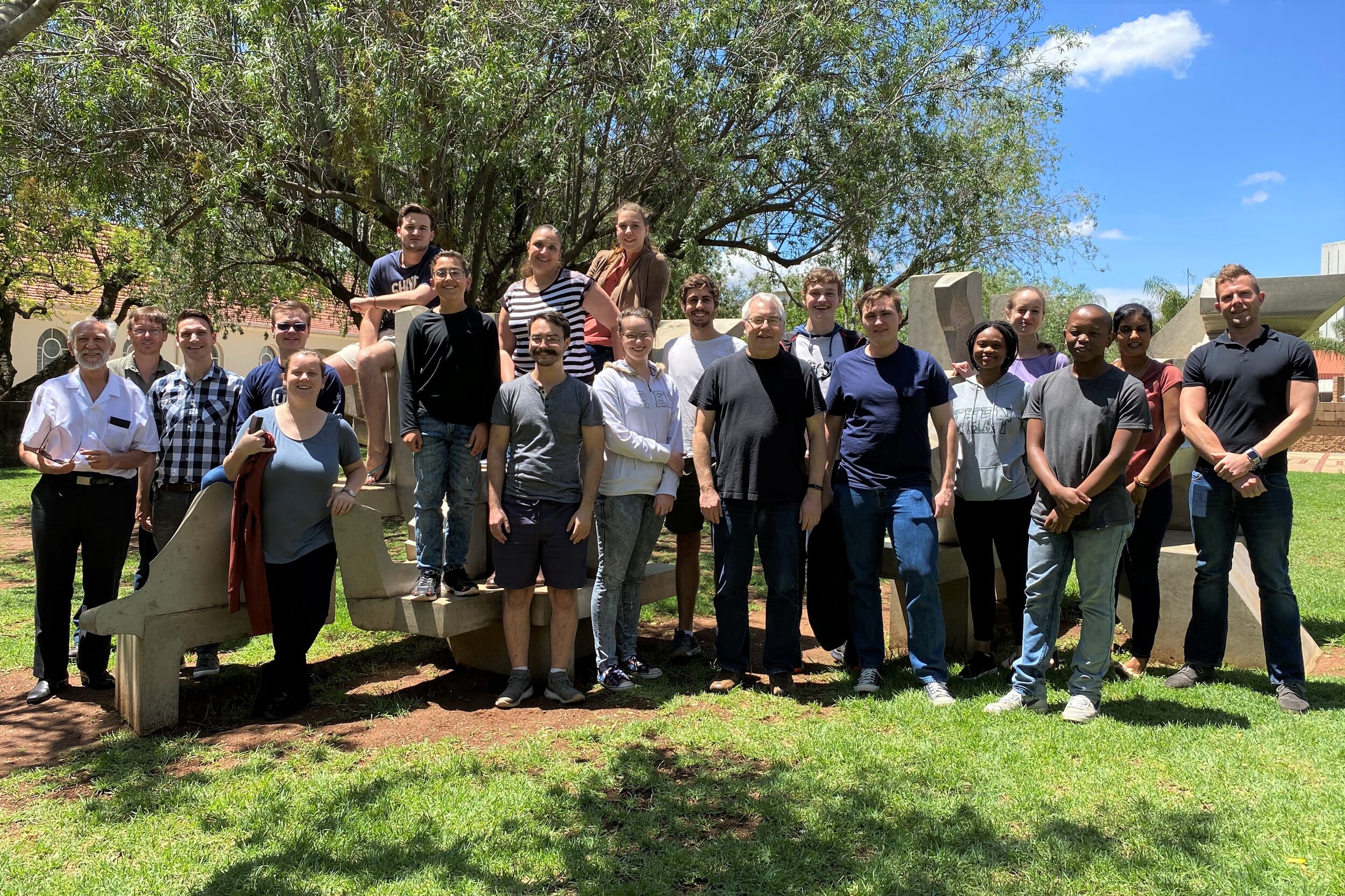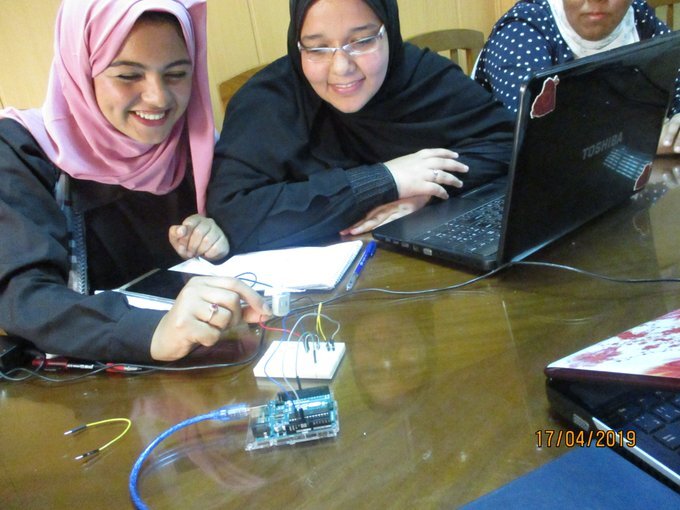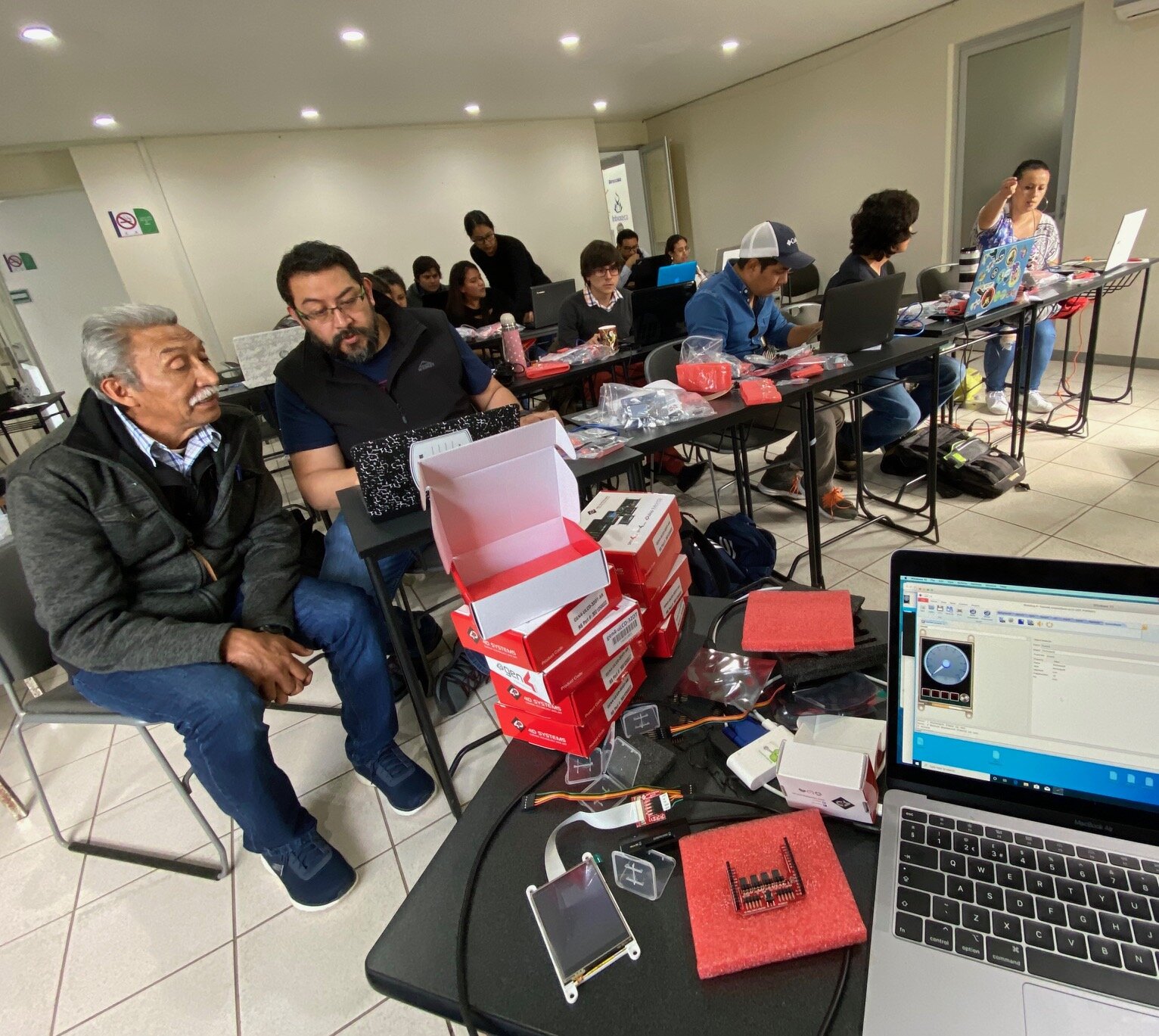Global Partners
Open FIESTA, Tsinghua University, Shenzhen
Fran Quero
Web: https://openfiesta.space and http://www.fiesta.tsinghua.edu.cn
Fran is a member of the managing team of the Open FIESTA community lab. He is a biologist by training and a DIYbio enthusiast engaged in developing open biology communities. Fran helped to create the first open citizen biofablab of Madrid (Spain) and founded the first collegiate and High School iGEM teams in the city. Professionally he has expertise in tissue engineering, nanotechnology, and biosensing. He is enthusiastic about electronics and digital manufacturing, and an open science promoter. He is graduated in biological sciences at the Complutense University of Madrid and now he is enrolled as a student of the BIO3 Master’s programme at the Open FIESTA faculty.
Kumasi Hive, Kumasi, Ghana
Harry Akligoh
Twitter: @harryakligoh; Web: http://kumasihive.com
Harry is a trained biomedical scientist. He currently works with Kumasi Hive as a technical associate and leads the Prac-science Lab project which set up labs in schools in Ghana and train teachers to use low-cost materials to hack experiments with their students. Harry was involved in an OpenPlant funded project in Ghana to pilot and develop a curriculum for teaching synbio using low-cost materials in high schools in low-resource countries. He is also a researcher with the Open Bioeconomy Lab where he develops open tools for biology research for use low-resource settings.
Twitter feed: https://twitter.com/KumasiHive
Dr. Jorge Appiah
Twitter: @JorgeAppiah; Web:http://kumasihive.com
Jorge is a Technoprenuer and Africa Tech-Policy Expert with a background in Electrical/Electronic Engineering (BSc), Business Administration (MBA) and Renewable energy (MSc). He is the co-lead for the Kumasi Hive Biotech Lab, a platform to drive innovation and scale-up utilization of biotechnology and entrepreneurship in a Ghanaian/African local context for sustainable development. He is passionate about youth employment and impact innovations, leading to a focus on accelerating the adoption of 4th industrial age technologies in solving crucial challenges and creating jobs in Africa through human capacity building. Jorge is the Co-founder/CEO of Kumasi Hive; a tech innovation hub for rapid prototyping of ideas, budding local innovations, impact start-up support and promoting youth entrepreneurship as a way of addressing critical social economic and developmental challenges. Jorge is also the co-organiser and community lead for Africa Open Science and Hardware (AfricaOSH) which seeks to create a platform for the promotion of Open Science and hardware practice by African makers, scientists, academics, artists and engineers.
Biomaker in Ghana: conversations from an international workshop at Kumasi Hive
Bahir Dar Institute of Technology, Bahir Dar University, Ethiopia
Prof. Tesfa Tegegne Asfaw
Director for ICT for Development (ICT4D) Research Center Asst. professor of Computer Science
Tesfa coordinates education and research in Computer Science at the Bahir Dar Institute of Technology.
Dr. Sewnet Alemu
Faculty of Mechanical and Industrial Engineering
Coordinator of Bahir Dar Maker Space
Sewnet teaches in the Engineering Department at the University of Bahir Dar, and coordinates teh establishment of the new Makerspace in Bahir Dar.
Biomaker Workshop in Bahir Dar, Ethiopia
University of Pretoria, South Africa
Dr Steven Hussey
Senior Lecturer in the Department of Biochemistry, Genetics and Microbiology,
Steven leads a research group within the Forest Molecular Genetics Programme focusing on the transcriptional and epigenetic control of wood formation in forest trees. His group explores the application of synthetic biology in forestry and have worked with the US Department of Energy Joint Genome Institute (DOE-JGI) to create 286 open-source Phytobricks for Eucalyptus biomass and bioenergy research. Steven has also led the Pretoria_UP iGEM teams in 2015 and 2016, and is interested in advancing synbio within the Biomaker Challenge model. To this end, he is collaborating with the University of Cambridge, Council for Scientific and Industrial Research and Imperial College London to develop point-of-care low-cost viral diagnostic devices. A postdoctoral fellow working on this project, Dr Letrisha Padayachee, is investigating the development and deployment of cell-free extracts as cost-effective expression platforms in frugal research and teaching environments. Steven and his colleagues are eager to collaborate with Biomaker teams interested in developing practical diagnostic devices employing safe and cheap cell-free technology.
Sean Kruger
Makerspace Coordinator- Strategic Innovation
Sean works with technology and its application in various spheres - including business solutions, research, strategy and innovative thinking. He manages the Makerspace at the University of Pretoria and brings new training and manufacturing resources to the student body abs research community there.
Dr. Kevin Land
Microsystems technology expert,
Kevin was the leader of the microsystems technology group at CSIR. He established the microsystems and microfluidics capabilities at CSIR and has worked extensively on micromanufacturing applications with laser technology while previously at the National Laser Centre. He obtained a PhD in Microsystems Engineering at the Institute for Microsystems Technology (Imtek, Freiburg), focusing on development of microfluidic droplet systems. Capabilities and projects include centrifugal microfluidics, cartridge based microfluidic systems, rapid bacterial detection utilising paper based microfluidics, mobile diagnostic point of care applications, and printed electronics and biosensors. Kevin has a passion to develop equipment free or minimally instrumented low cost diagnostics solutions utilising printed functionality and paper substrates - particularly for developing countries where such solutions would have massively transformative impact.
University of Pretoria Partners with University of Cambridge Synthetic Biologist to Build User-Friendly Electrical Engineering Capacity
Faculty of Agriculture, Mansoura University, Egypt
Prof. Walid M. El-Sharoud
Twitter: @Walidws
Walid is a professor at Mansoura University with a PhD in molecular bacterial physiology and food safety from the University of Reading (UK). He has expertise in the study of bacterial ribosomes, genotyping and molecular analysis of pathogenic bacteria and the development of lab-on-a-chip portable instruments. He has collaborated with researchers from the Cornell University to develop a microfluidics-based real-time PCR instrument for the detection of pathogenic bacteria. Walid is currently interested in metabolic engineering for biofuel and bioplastic production, synthetic plasmids, cell-free protein synthesis and DIY instrumentation.
Biomaker Workshops at Mansoura University, Egypt
Institute for Biotechnology and Applied Ecology (INBIOTECA), Universidad Veracruzana, Xalapa, Mexico
Prof. Mario Arteaga
Mario runs a research group that studies epigenetic control of development and gene regulation in the model plant, Marchantia polymorpha, and has developed a wide network of international collaborations in this area. He has a keen interest in new technologies for sustainable agriculture.
Biomaker Workshop at the Universidad Veracruzana, Xapala, Mexico
Departamento de Genetica Molecular y Microbiologia, Pontificia Universidad Católica de Chile, Santiago, Chile
Dr. Fernan Federici
Fernan is a group leader at the Pontificia Universidad Católica de Chile (PUC) in the area of Synthetic Biology. He started his career studying Agricultural Engineering (Universidad Nacional de Cuyo, Argentina), Molecular Biology (PUC, Chile) and working at Alvarez-Buylla´s lab (UNAM, Mexico). Fernán obtained his PhD in Biological Sciences from the University of Cambridge and did a postdoctoral research fellowship in Jim Haseloff ´s lab ( University of Cambridge, UK). Fernán´s group promotes open source approaches for bioengineering, science and education in Latin America. He is one of the organisers of TECNOx, a Latin American community that seeks to develop technological solutions to local challenges by applying open source technologies.
Centre for Global Equality, University of Cambridge, UK
Dr. Lara Allen
Web: https://centreforglobalequality.org
Lara is the Director of Implementation and Impact for Cambridge Global Challenges, and Director of the Centre for Global Equality, a Cambridge-based civil society organisation that evolves innovative solutions to global challenges.
Following an academic career in South Africa and the UK, Lara has held senior positions in the international development sector. As a researcher and practitioner Lara is working on methodologies of co-creation across divides characterised by unequal power relations. She is particularly concerned about knowledge inequality and its consequences, and is evolving models to structure effective, mutually beneficial interactions between universities and under-developed communities in developing and emerging economies. She is also interested in fostering mechanisms to generate mutual benefit and improve relationships between people and conservation in instances where impoverished communities live in or near protected areas.
Lara’s interest in international development was sparked in the early 2000s by her involvement in a community outreach project of the University of the Witwatersrand, South Africa, where she was a Senior Lecturer. She co-founded and initially directed the community-based not-for-profit that grew out of this project. This is now a sustainable, community-run, social enterprise that continues to generate employment in impoverished rural part of South Africa.
Department of Chemical Engineering & Biotechnology and Biomakespace, University of Cambridge, UK
Dr. Jenny Molloy
Twitter: @jenny_molloy & @openbieconomy;
Web: https://openbioeconomy.org/ and https://biomake.space
Jenny is a Shuttleworth Fellow at the University of Cambridge, studying the role and impact of open approaches to intellectual property for a sustainable and equitable bioeconomy. In particular she researches the potential for local, distributed manufacturing of enzymes to improve access and build capacity for biological research. In addition to her role in the University, she is a founding Director of Biomakespace, a community laboratory for engineering with biology, and she co-organises the international Gathering for Open Science Hardware.
Department of Plant Sciences, University of Cambridge, UK
Prof. Jim Haseloff
Twitter: @jimhaseloff
Jim is a plant biologist working on the engineering of plant morphogenesis, using microscopy, molecular genetic, computational and synthetic biology techniques. (www.haseloff.plantsci.cam.ac.uk). He and his group have developed new approaches to RNA engineering, quantitative imaging and gene expression in plants. He has been Cambridge Director of the BBSRC-EPSRC OpenPlant initiative. OpenPlant is: (i) developing new tools and methods for plant synthetic biology, (ii) providing mechanisms for open sharing of standardised resources, (iii) applying these tools to world-leading projects in trait development, and (iv) facilitating interdisciplinary exchange, outreach and international development. The initiative promotes open technologies and responsible innovation for improvement of sustainable agriculture and conservation (www.openplant.org).
In addition to running a research lab, Jim teaches synthetic biology at the University of Cambridge, and promotes its wider potential as a tool for engineering biological systems and underpinning sustainable technologies.
Dr. Matt Wayland
Matt manages a centre for advanced imaging at the Department of Zoology in Cambridge. He has a long-standing interest in building scientific equipment and instrumentation. He is one of the most prolific contributors to external code libraries for the XOD no-code programming environment. Click here to see his contributions.
Matt has played a key role in the development of scientific applications and training with XOD, known to whip up crucial missing libraries in a few hours, and well-known source of help on the international XOD Forum.
Dr. Stephanie Norwood
Biomaker Coordinator
Stephanie was coordinator for Biomaker, OpenPlant and the Cambridge Engineering Biology Interdiscipinary Research Centre. She organised a wide range of events such as Cafe Synthetique and the EngBio Forum that bring together students, researchers and external collaborators around synthetic biology. She managed the Biomaker initiative that provided funding for interdisciplinary team-based projects at the intersection of engineering, biology, design, and low-cost instrumentation. Currently on maternity leave.




















